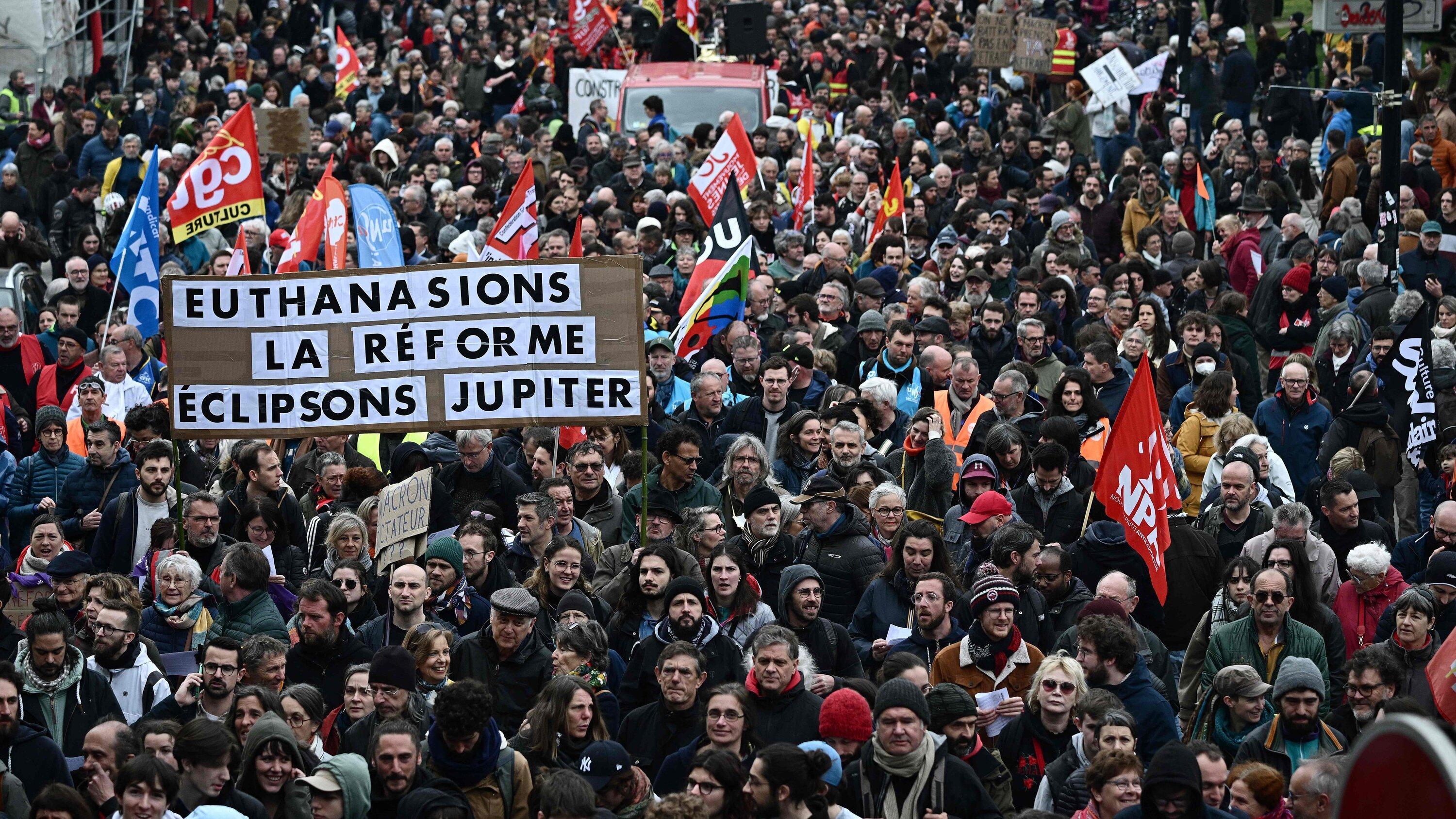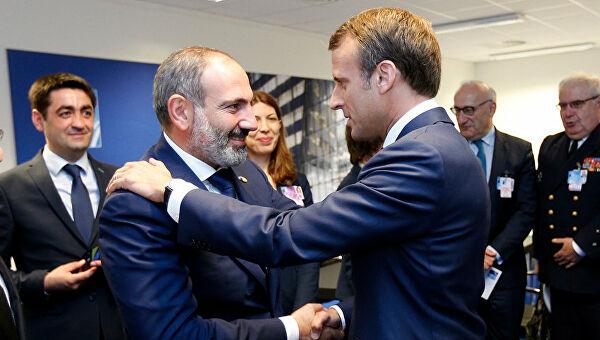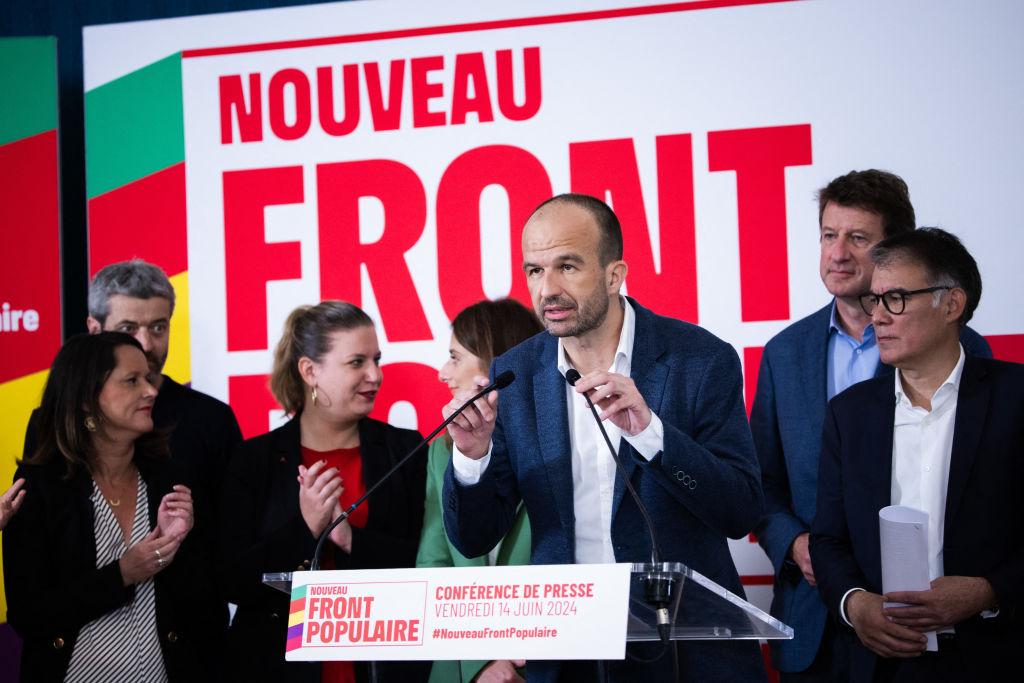Macron in the grip of unpopularity, pressure & political fallout ahead of snap parliamentary polls Internal strife & foreign challenges
France's President Emmanuel Macron is facing unprecedented political turbulence. The recent European elections resulted in a significant defeat for his party, prompting him to dissolve the National Assembly in an attempt to regain control. Despite these efforts, the situation continues to deteriorate, with both internal and external challenges mounting. Macron is grappling with a multifaceted crisis and rising opposition pressure, with potential outcomes that are increasingly unpredictable. These developments could profoundly impact Macron's political standing, his foreign policy, and France's relations with Ukraine and Azerbaijan.
Election setbacks and dissolution of the National Assembly
The recent European elections were a disaster for Macron's party, which suffered a substantial defeat. This loss has significantly weakened his political standing and triggered a series of desperate measures. Macron's decision to dissolve the National Assembly was a bold move aimed at restructuring his government and rejuvenating his party's image although he had appointed younger members to key positions, hoping to inject fresh energy and ideas into the administration. However, these changes have not yielded the desired results, as the government's popularity continues to decline.
Internal strife: trade union protests and overseas uprisings
Macron's government is besieged by internal strife, with trade unions leading large-scale protests against his policies. These protests are primarily driven by discontent over economic reforms, including changes to the retirement system and labor laws. The unions argue that Macron's policies favor the wealthy and undermine workers' rights. This unrest has not only disrupted daily life in France but has also highlighted the deep-seated dissatisfaction with Macron's leadership.

In addition to domestic protests, the French government is facing uprisings in its overseas territories. These uprisings are fueled by long-standing grievances over economic inequality, lack of infrastructure, and perceived neglect by the central government. The unrest in these territories further strains the government's resources and diverts attention from pressing domestic issues. These internal challenges have contributed to a rapid decline in Macron's popularity, as evidenced by plummeting opinion polls.
Foreign policy shifts: Closer ties with Armenia
On the international front, Macron's government has taken significant steps to strengthen ties with Armenia, often to the detriment of Azerbaijan. This shift in foreign policy is partly driven by historical and cultural ties between France and Armenia. However, it has complicated efforts to broker a peace deal between Armenia and Azerbaijan. Despite Azerbaijan's significant military successes in the 2020 Nagorno-Karabakh conflict, Macron's support for Armenia has hindered the peace process and drawn criticism from various international observers.

Macron's stance has also affected France's relations with other countries in the region. Azerbaijan, in particular, has expressed dissatisfaction with France's bias. This has strained diplomatic relations and impacted France's role as a mediator in the conflict. Furthermore, Macron's foreign policy moves have implications for France's standing in the European Union and its broader geopolitical influence.
Rising opposition pressure
Amidst Macron's struggles, opposition parties are gaining momentum. The far-right, led by Marine Le Pen, and the newly formed Nouveau Front Populaire, comprising France's leading left-wing parties, are positioning themselves as viable alternatives to Macron's administration. Both factions have laid out ambitious plans to address France's economic and social challenges, aiming to capitalize on Macron's waning influence.

Marine Le Pen's Rassemblement National has been particularly vocal in criticizing Macron's policies. Le Pen's party has gained traction by appealing to voters' concerns about immigration, national identity, and economic inequality. The far-right's narrative resonates with a significant portion of the electorate, particularly those disillusioned with Macron's neoliberal policies.
On the left, the Nouveau Front Populaire represents a broad coalition of parties united by a common goal of defeating Macron and the far-right. This alliance includes France Insoumise, the Parti Socialiste, the Parti Communiste, and Les Écologistes. Together, they have developed a comprehensive policy platform aimed at reversing Macron's reforms and addressing social and economic inequalities. The left-wing coalition's proposals include increasing the minimum wage, investing in public services, and implementing progressive taxation measures.
The upcoming parliamentary elections are crucial for Macron's political future. If his party loses, several scenarios could unfold, each with significant implications for France's domestic and foreign policy.
A defeat in the parliamentary elections would likely lead to a significant shift in France's legislative agenda. Opposition parties would push for policies that starkly contrast with Macron's neoliberal approach. This could include reversing his controversial retirement reforms, increasing investments in public services, and implementing measures to reduce economic inequality. Such changes would mark a departure from Macron's focus on economic liberalization and could lead to increased public support for the new government.
Macron's status
Losing control of the National Assembly would severely weaken Macron's position. It would limit his ability to implement his policies and could potentially lead to early presidential elections. A weakened Macron would also face increased scrutiny from his rivals, further eroding his support base. This scenario could result in a significant shift in the balance of power within French politics, with opposition parties gaining greater influence.
A power shift could lead to changes in France's foreign policy stance. Opposition parties, particularly the left-wing coalition, may advocate for a more balanced approach to the Armenia-Azerbaijan conflict. This could ease tensions with Azerbaijan and improve diplomatic relations. Additionally, changes in foreign policy could impact France's support for Ukraine and its relations with other international allies.

While opposition parties have expressed support for Ukraine's sovereignty, their approach may differ from Macron's all-out backing. The left-wing coalition, in particular, has emphasized the need for a more balanced and multilateral approach to international conflicts. This could lead to nuanced changes in France's military and economic support for Ukraine. For instance, the new government may prioritize diplomatic efforts and humanitarian aid over military assistance.
Conclusion
Emmanuel Macron's administration faces a multi-faceted crisis marked by declining popularity, rising opposition pressure, and significant challenges both domestically and internationally. The upcoming parliamentary elections will be pivotal in determining the future direction of France's government and its policies. As Macron's rivals gain momentum, the political landscape is set for substantial shifts, with far-reaching implications for France and its role on the global stage.
If Macron's party loses the elections, it could lead to significant changes in domestic policies, weakening his political position and potentially resulting in early presidential elections. The new government would likely pursue a more balanced foreign policy, impacting France's relations with Armenia, Azerbaijan, and Ukraine, to name but a few. As the political landscape evolves, France's role in international affairs and its approach to domestic challenges will be closely watched by both national and international observers.








